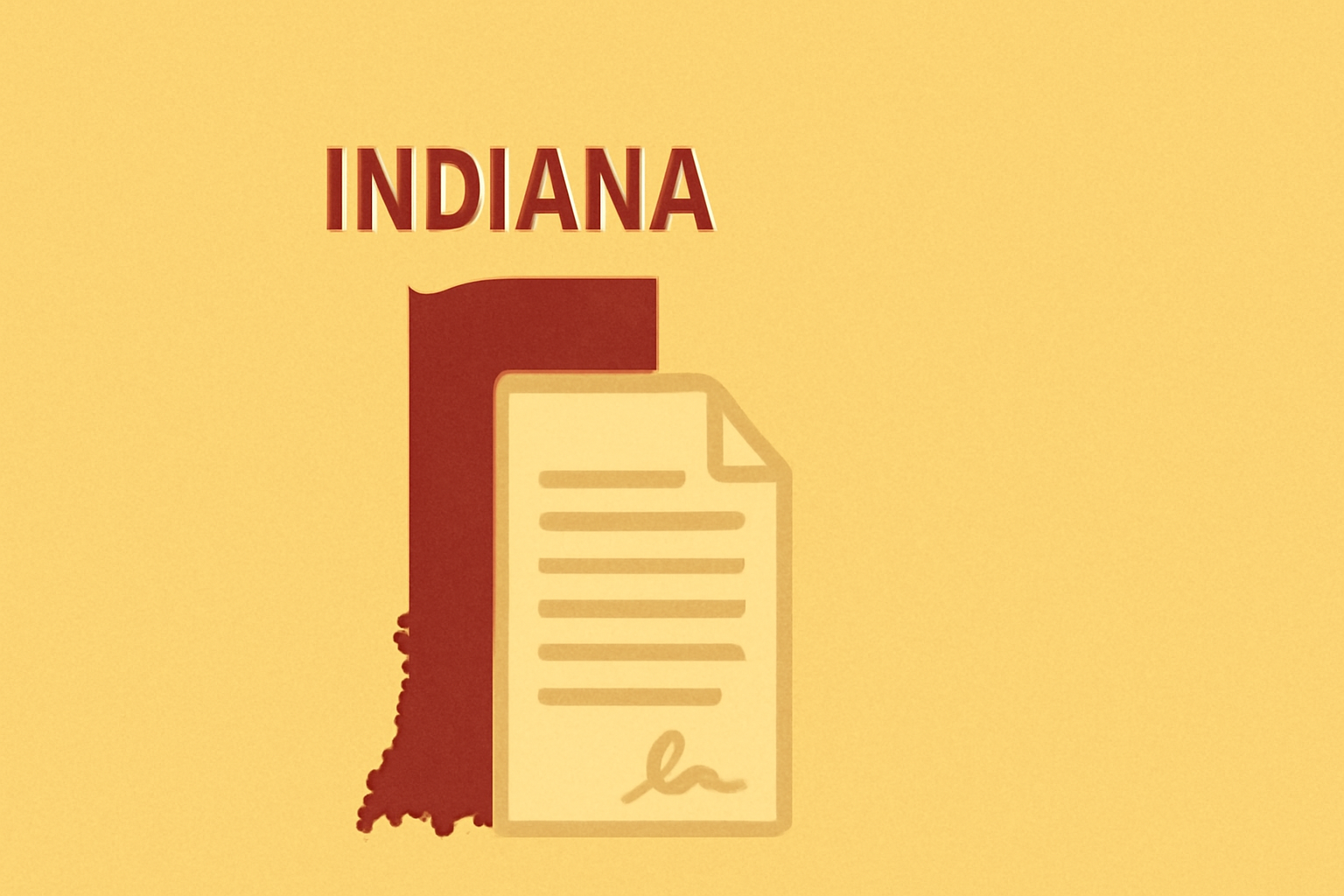Indiana Bill of Sale Form
An Indiana Bill of Sale Form is a contract backed by the law to officially document an ownership transfer. It formally states that personal property has been exchanged between a buyer and a seller in Indiana.
Indiana Bill of Sale Types
As-Is
Vehicle
Why Do You Need an Indiana Bill of Sale Form?
In Indiana, a general bill of sale isn't always legally required for all personal property transactions. However, it's highly recommended to establish a clear paper trail. For motor vehicles, an Indiana Bill of Sale is crucial. It's for the buyer to transfer the title and register the vehicle with the Indiana Bureau of Motor Vehicles (BMV).
The Bill of Sale document includes some essential details that are necessary for the transfer process:
- Vehicle Identification Number (VIN)
- Current Odometer Reading
- Finalized Sale Price
In Indiana, the law mandates a written agreement for selling goods priced at $500 or more. This makes the contract legally binding and enforceable. A Bill of Sale is non-negotiable for transactions of this type in Indiana. Notarization is not a legal requirement.
Common Uses of an Indiana Bill of Sale Form
This document formally shows that:
- The seller no longer owns the item.
- Liability is now transferred to the buyer.
- The buyer has evidence of new ownership.
- The buyer has full rights to all future sales.
- The ownership transfer is legally compliant with state regulations.
- The buyer has the responsibility for registration and insurance records.
The extra level of authentication assures both parties involved in the transaction.

Bill of Sale Form is not legally mandated for all sales, but is strongly advised for proving ownership. It is essential for the buyer to transfer the title and register the vehicle with the Indiana BMV. By law, goods valued at $500 and above require a written contract for enforceability.
The information of both parties is important. These are their legal names and addresses.
A Bill of Sale does not have to be notarized in Indiana. However, notarization can add an additional measure of authentication and legal certainty.
The buyer submits the Indiana Bill of Sale Form with the signed title and other documents to their local Indiana BMV branch. It is to transfer the title and register the vehicle.